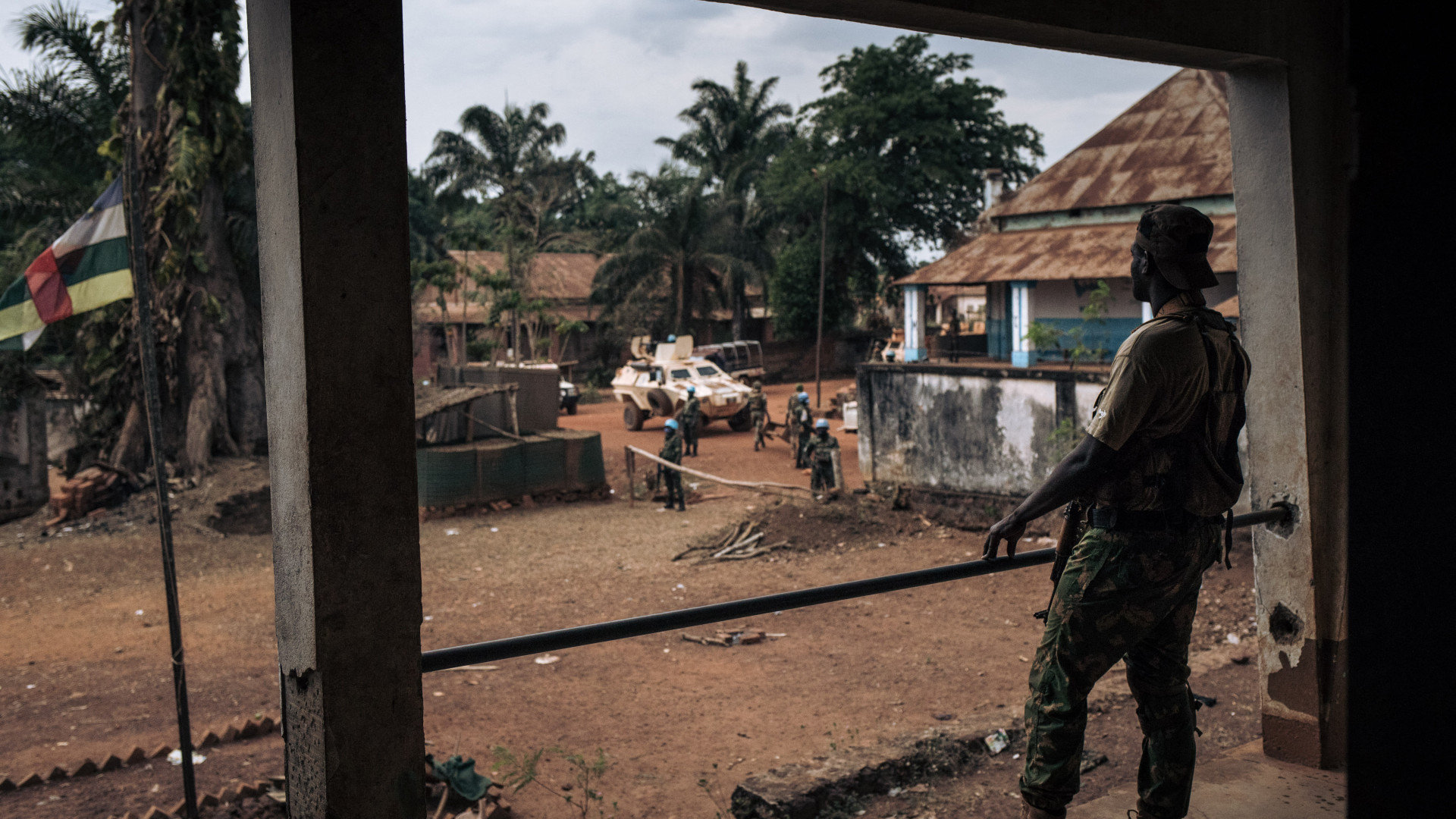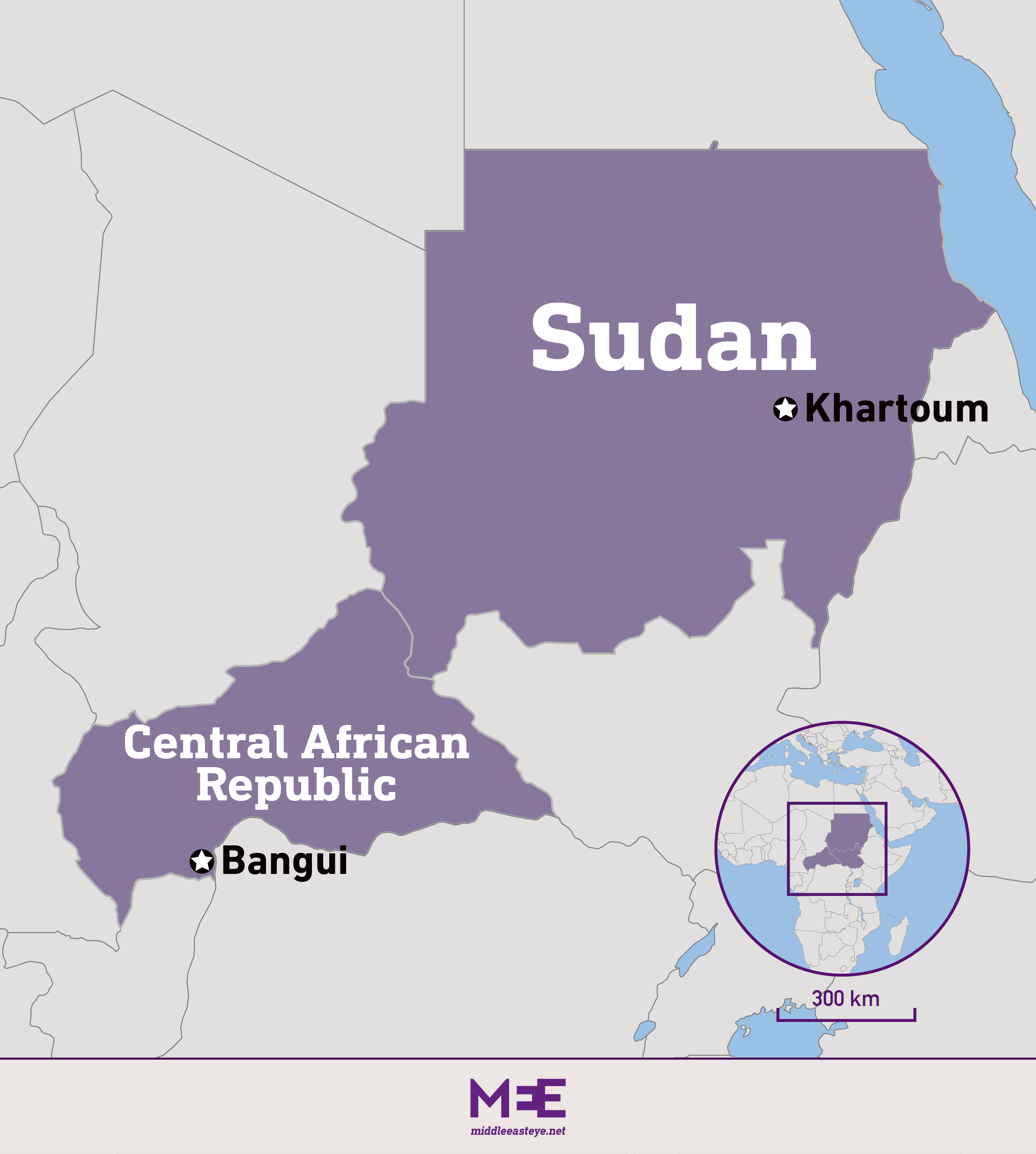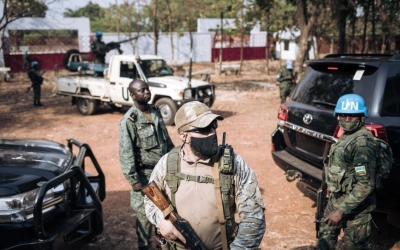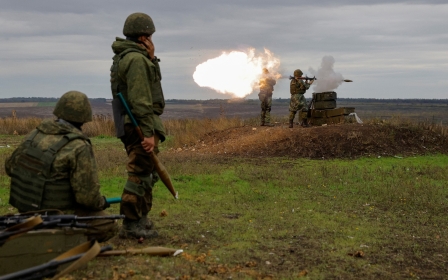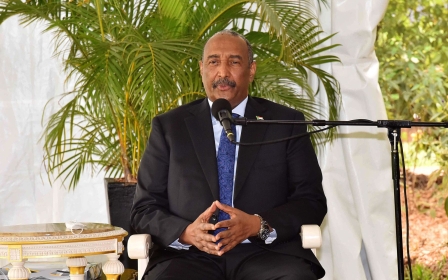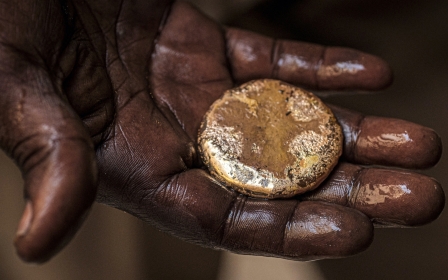Hemeti's CAR coup boast sheds light on Sudanese role in conflict next door
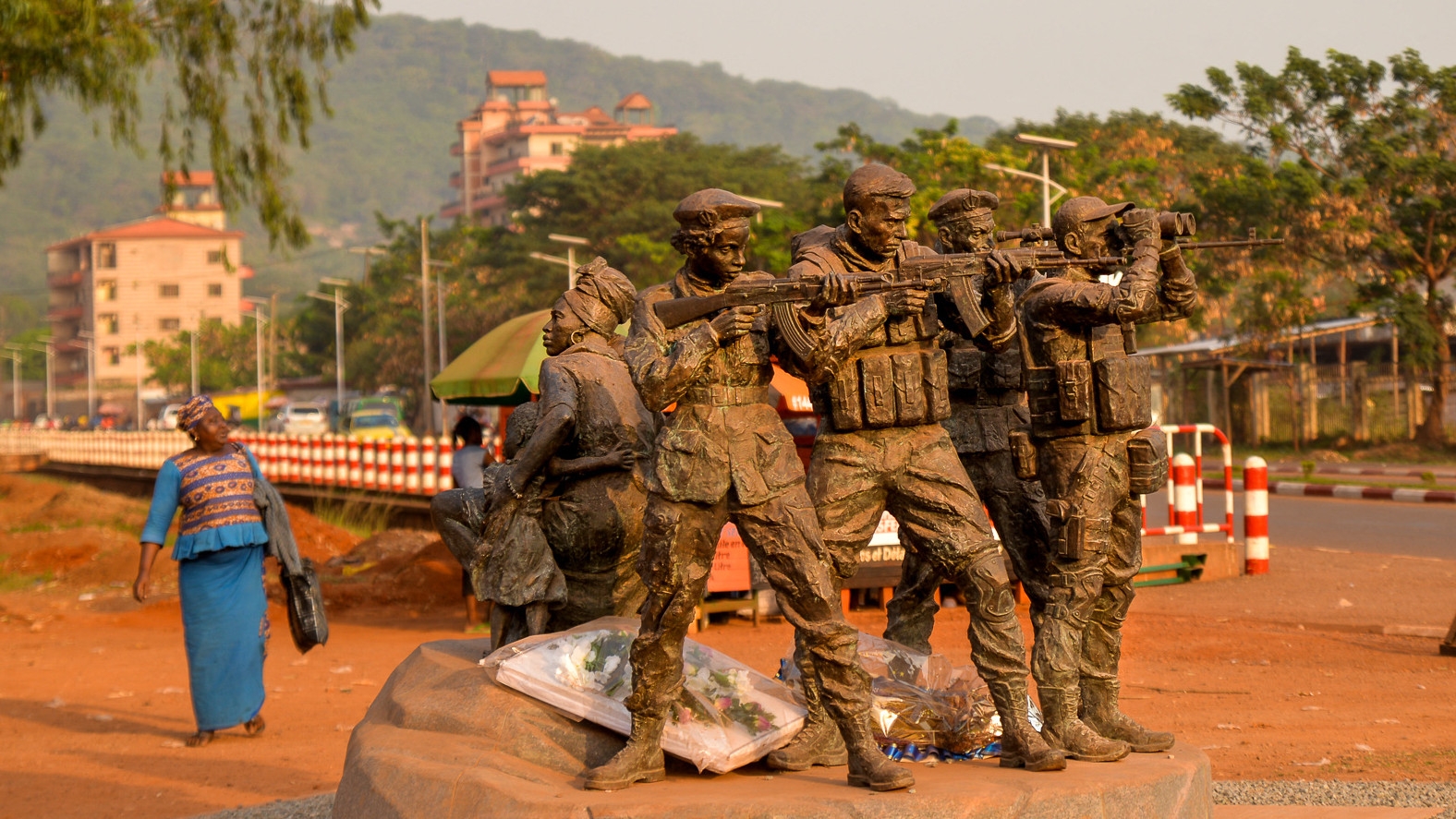
Khartoum’s de facto deputy leader, General Mohamed Hamdan Dagalo, has claimed he helped stop a coup to overthrow the government of the Central African Republic (CAR) being plotted over the border in Sudan.
Dagalo, commonly known as Hemeti, said on 4 January that Sudan in late December stopped forces moving from inside Sudanese territory to oust the CAR leadership, stoking ongoing speculation about the role of Sudanese troops and Russian mercenaries in the nearby conflict.
Talking to the media in Khartoum after a visit to Darfur, near the CAR border, Hemeti, who runs Sudan’s notorious Rapid Support Forces (RSF) militias, claimed that internal security agents and former military officers in Sudan had been arming forces linked to CAR rebel groups hoping to topple the regime.
Fighting in CAR, which has been battling a civil war since 2013, has intensified in recent months, particularly in resource-rich areas, with rebel militias clashing with government troops, who are backed by Rwandan forces and Russia’s Wagner Group.
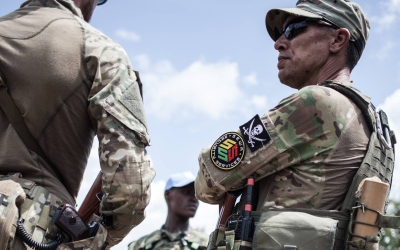
“This is the second time such a thing has happened,” Hemeti said of the supposedly foiled coup.
“A year and half ago forces amassed on the border ready to attack, but this time, it was on a bigger scale, with the support of bigger players.
“We talked to our neighbours [the CAR authorities] and asked them what was going on, but they said they didn't know,” Hemeti added.
“We monitored the borders and saw the militiamen, former senior officers and others, amassing, carrying weapons on vehicles.”
On 7 December, Hemeti claimed, they ordered the troops to disperse. “We waited for 21 days but there was no movement.
"When we worked out the conspiracy we moved and closed the borders,” he added.
An RSF-Wagner alliance?
Opposition forces, known as the Coalition of Patriots for Change (CPC), which include the former Seleka group and led by former CAR president Francois Bozize, have denied Hemeti’s claims, instead accusing the RSF of supporting Wagner against them within CAR borders.
Abdo Buda, a spokesperson from the Union for Peace in the CAR (UPC), one of the groups that make up the CPC, told MEE there were no rebels inside Sudan, adding that while Sudan has deployed forces on the border there has been no fighting.
He said that rebel forces had achieved several victories since November, killing Wagner mercenaries and seizing areas in the west, east and south of CAR, adding that they were “450 km” away from the capital Bangui.
These claims were denied by a CAR diplomat, speaking to MEE on condition of anonymity: “Everything is under control,” he said. “They are lying.”
Buda went on to accuse Hemeti’s forces of conspiring with Wagner mercenaries.
“Earlier in January, RSF and Wagner agreed to begin joint military operations against us inside CAR,” he claimed. “The RSF is massing forces in Am Dafok [a border area in South Darfur].
“They tried to arrest our force commander Ali Darassa a few days ago in an intelligence operation but they failed,” he said, referring to a UN-sanctioned Nigerian.
Hemeti in turn rejected any involvement in CAR’s conflict, describing it as a “trap” and blaming unnamed parties trying to sabotage the reputation of the RSF.
“Groups in RSF uniforms tried to carry out a coup in CAR,” he said, adding that “large quantities of RSF uniforms are being smuggled across the border”.
Russians on either side of the border
Sudan’s complicated relationship with the conflict in CAR has a lot to do with its friendship with Russia - and the Wagner group.
The conflict over resources - particularly gold - in the region worsened in 2017 when former Sudanese president Omar al-Bashir allowed Russia to mine on the border of Sudan and CAR, according to Sudanese analyst Moniem Madibo.
In 2018 - the same year three Russian journalists investigating Wagner in CAR were killed - Moscow sent instructors to the country. In 2020, it deployed hundreds of paramilitaries to help CAR President Faustin Archange Touadera defeat rebels advancing on the capital.
French troops - deployed to CAR after the 2013 coup - left the country last December following a chill in relations caused by the closer ties between Bangui and Moscow.
"Today we have a battle-hardened army - thank you, France, which has been training and equipping it for 62 years," Fidele Gouandjika, special adviser to President Touadera, said at the time. "Now we are going to do [it] with Wagner."
Enabled by the governments in both countries, Wagner group mercenaries now control diamond and gold mines on either side of the border.
Sudanese authorities reportedly used Russian private mercenaries to train the army in 2019, and have continued to cosy up to Putin and Wagner since the October 2021 military coup. (Sudan’s foreign ministry has denied that the Wagner Group has a presence in the country.)
Hemeti - whose RSF had reportedly sold weapons to CAR rebel forces in 2019 - spent a week in Russia last spring defending Putin’s assault on Ukraine and saying he was open to Moscow establishing a naval base on Sudan’s Red Sea coast.
The sanctions imposed on Moscow following the invasion of Ukraine mean that “in the short term, Russia will have little means to assist the economic crisis in Sudan,” Sudanese pro-democracy campaigner Suleiman Baldo told MEE last year, “beyond the continued supply of weapons to the army and the security and political services that Wagner Group continues to provide both to the army and the Rapid Support Forces.”
The Wagner Group is seen by western officials as a way for Russian President Vladimir Putin's government to spread its influence around the world, securing valuable gold mining concessions that help Moscow circumvent sanctions and build relationships with amenable African and Middle Eastern governments.
Russia's invasion of Ukraine has increased Moscow's need for revenue, and it is believed the war has spurred efforts to secure gold from Africa, which is then allegedly laundered through the United Arab Emirates.
CAR, which the World Bank has called “one of the poorest and most fragile countries in the world despite its abundant natural resources”, is at the heart of this push.
"In Bangui, Wagner troops protect the government, particularly the presidency, while their modus operandi in the provinces indicates that they are primarily interested in securing gold and diamond zones,” Pauline Bax, Africa programme deputy director at the International Crisis Group, told MEE.
"They control several important mining areas, and regularly engage in fighting in mining areas that are under control of CPC rebels," she said.
Bax told MEE last year that Wagner forces recruited young men, often former rebels, from the provinces of CAR to act as local militias. These fighters, nicknamed "Black Russians", protect smaller towns from attack and "have been given a free hand to collect local levies, likely so that Wagner does not have to pay them".
Wagner mercenaries were behind a massacre of more than 100 civilians at a gold mine near the Sudan-CAR border last year, according to eyewitnesses speaking to MEE.
No coup, no proxy war
Despite pulling out its troops from CAR in 2020, there has been speculation that France still has a hand in the country’s ongoing civil war.
One prominent human rights defender, who declined to be named for security reasons, told MEE that “the French are supporting the opposition, but not officially”.
'Armed groups are fighting to get access to or maintain control over resources after they were pushed out of most urban centres by the army and their Russian allies'
- Pauline Bax, International Crisis Group
Wagner head Yevgeny Prigozhin in December said France was behind an assassination attempt in Bangui on Dimitri Sytyi, a US-sanctioned Russian with reported ties to the group. France denied the accusation.
Bax of the International Crisis Group says that while “the West is deeply concerned about Wagner's activities in CAR,” the French are no longer involved in the conflict.
“France is upset that it continues to be the target of Russian-led disinformation campaigns,” she said.
“But it would be wrong to say that CAR is a theatre of violent international competition. While this may be the perception of many central Africans, the West is mainly trying to figure out how and if it can maintain a cordial working relationship with CAR's government.”
Bax also told MEE that despite Hemeti’s claims, there was no real evidence of a military coup.
“The situation in CAR has not changed substantially in the last few months. Armed groups are fighting to get access to or maintain control over resources after they were pushed out of most urban centres by the army and their Russian allies.”
Middle East Eye delivers independent and unrivalled coverage and analysis of the Middle East, North Africa and beyond. To learn more about republishing this content and the associated fees, please fill out this form. More about MEE can be found here.


